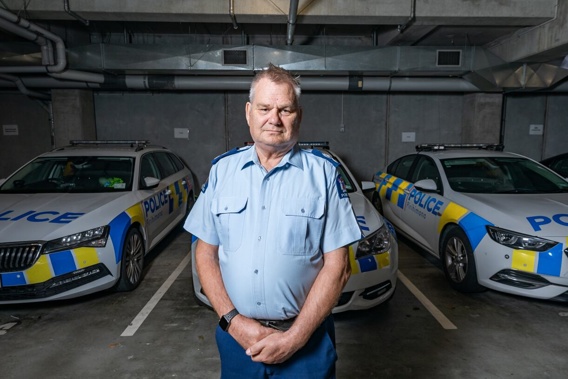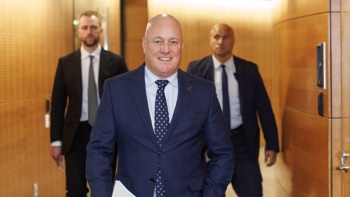
Drunk driving crashes leave a trail of hurt, loss and carnage in their wake, yet the number of people caught over the limit on Bay of Plenty roads is rising. For this story, the fourth in our Traumatic Toll series examining drink-driving harm, Sonya Bateson talks to the head of the Western Bay of Plenty’s road policing team.
Not much fazes Wayne Hunter.
The senior sergeant is the head of the western Bay of Plenty’s road policing team and describes himself as “hardened” by what he’s seen and experienced in his 47 years in the blue uniform.
You had to harden yourself in the past, he says. That’s just how you coped - that, and a “jug session” at the police bar. Counselling existed back then, but no one used it.
“We had that attitude of ‘we’re men, if you take that you’re weak’,” Hunter says.
“In my day when I first joined, we went to the crashes and we saw a lot of things and we had to suck it up. We wouldn’t talk to people about it, we would bottle it up and do our job.
“When I was a new cop, [serious crashes] did affect me. I would go home and not sleep. Now, I’m sort of hardened to it. It hasn’t worried me for a long time.”
Every once in a while there will be a crash that breaks through Hunter’s mental barriers.
The worst crashes involve children, Hunter says.
“Children are hard. Even when they are just in the car, it just traumatises them. Especially if someone in the car is injured or has died.”
And, sometimes, a particular crash victim will affect him more than usual. That may be because of the horrific nature of the crash - the five coolstore workers from Tonga who died in 2016 in Aongatete was one example he gave - or because he is moved by a victim’s story.
“The last fatal I went to - the only fatal crash this year, by the way - the last one did really affect me because he was a really great guy that was killed.
“I went to the funeral and everything. I didn’t know him, I read about him in the paper. I still touch base with the family.
“That one did affect me because I know more about him as a person. I usually don’t know the people. I have never - touch wood - known a person in a crash.”
But there’s one part of the job that Hunter finds even harder than attending the worst crashes: Knocking on someone’s door to inform them their loved one has died.
“I still can’t deal with that after all this time. Being the boss, I delegate that now.
“That’s harder than dealing with the body itself. You’re dealing with people and their emotions. When they see a cop walking up their driveway they think the worst and on those occasions it is.
“It’s the hardest job in the police. In road policing, we get the brunt of that.”
And how does one cope with that? Hunter says getting on with the job distracts from the reality of what’s in front of him.
“You immerse yourself in your job. You’ve got a job to do.
“As the boss, it’s my job to have the helicopter view. I keep myself on track of what I’ve got to do. As long as you’re not just standing around doing nothing; that’s when your thought processes get in the way.
“I get in, I know what to do. My staff know what to do because they’ve been to so many.”
These days, staff who attend serious crashes are required to go to mandatory counselling sessions every three months, and all staff have the choice to seek counselling if they feel they need it, Hunter says.
“We’ve got a lot more younger cops. It does affect them. I’ve got to remember that. When they talk to me about how they’re feeling, it’s not like the old days. They are not hardened to it, which is a good thing.
“It affects everybody in different ways.”
“In the old days, we used to have a drinking session at the police bar. That’s how we blew off steam. We don’t do that these days, there needs to be other ways of dealing with it.
“Not just for crashes but for anything. If you need assistance you talk to your senior sergeant and we will give you what you need to get through it.”
Like any road cop, Hunter has a bugbear about drunk drivers. It’s a crash factor that is “entirely preventable” and causes immeasurable damage to a wide net of people.
“If there has been a crash and a fatality and drink driving has contributed to the crash, someone has been killed and it didn’t have to happen. Someone has to live with that for the rest of their life,” Hunter says.
“You’ve probably caused trauma to a whole lot of people.”
Not only were friends, family, and work colleagues of the drunk driver affected, but the people at the scene of the crash often had lasting trauma.
That included crash witnesses, passersby who stop to assist, and first responders such as firefighters, ambulance workers and, of course, police.
“When they take out innocent people, that’s when you get concerned and think ‘This shouldn’t have happened’.”
Take your Radio, Podcasts and Music with you









